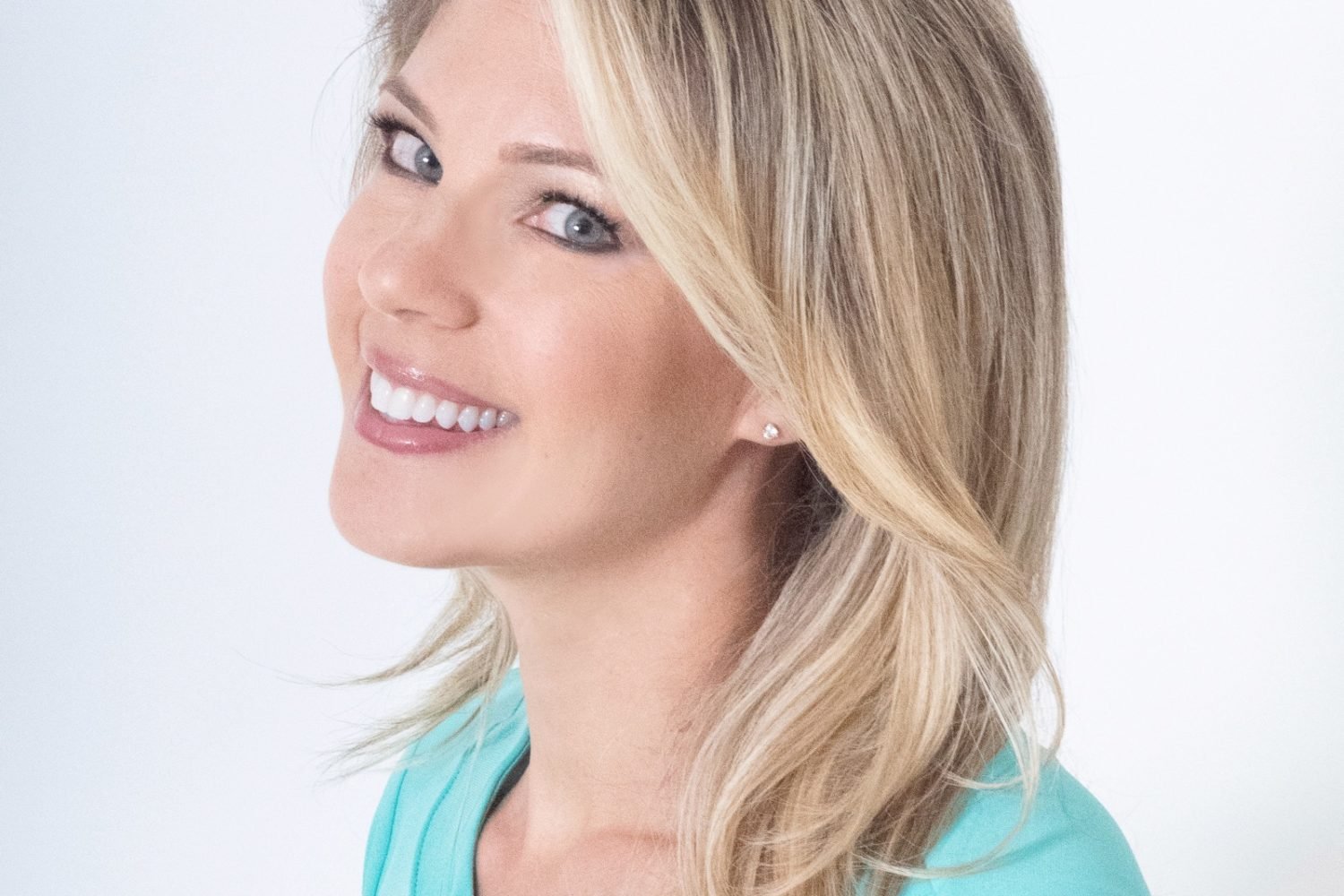A t social events, when someone heard I was principal of Thomas Jefferson High School,” Elizabeth Lodal says, “they’d start talking about how brilliant their kids were.” When she’d explain she had nothing to do with admissions into this highly regarded Fairfax school specializing in math and science, “they became less interested in talking to me.”
Lodal, who retired this summer, believes “there are enough pressures in this job without taking on admissions. Being principal of a big high school is a 24/7 job. You’re CEO of a huge, highly visible business. You’re always operating in a fishbowl.”
Lodal, 62, was born in Houston. The family soon moved to Fort Stockton, “a dusty cowboy town way out in west Texas.” Her father was the first in his family to graduate from high school and from college. After serving in World War II, he bought a five-and-ten store. Her mother worked as a legal assistant.
Lodal received a BA in history from Rice University. After college, she taught history and English in New Jersey. In 1967 she moved to Washington to teach in Arlington’s high schools. She earned a master’s degree in secondary-education administration from George Washington University.
After five years of teaching and five as an administrator, she became principal of Vienna’s Joyce Kilmer Middle School in 1977. She headed Reston’s Langston Hughes Middle School—she chose the name—from 1979 to 1985 and then led McLean High School for a decade. She was called out of retirement to become an educational consultant before becoming principal of Thomas Jefferson High School in 2000.
Lodal’s honors include the American Association of University Women’s Virginia Educator of the Year, the Distinguished Alumnus of Rice University award, and the Rabbi Richard Sternberger Social Justice Award for combating racism, bigotry, and prejudice. The honor she appreciates most is the Fairfax County School Board’s naming the McLean High School library after her.
Lodal lives in McLean with her husband, Jan, a former software entrepreneur and Defense official, now president of the Atlantic Council of the United States. They have two children: Eric, a screenwriter and director, and Kirsten, who runs National Student Partnerships, a nonprofit that mobilizes college students to help people get and keep jobs.
In Lodal’s office at Thomas Jefferson, shortly before her retirement, we talked about what she’s learned.
What does an ideal classroom look like?
It’s full of engaged learners. They’re gathered in groups, adapting the Socratic method by asking questions and learning from one another. They’re learning how to challenge one another in a way that isn’t personal. They then apply what they’ve been learning.
In science, you can actively engage students with experiments. At T.J. we try to model what scientists do in the real world. As freshmen, students go into the field in teams to collect data from real-life situations, initially focused on water and the environment. They analyze what they find and, along the way, learn the scientific method.
We also emphasize learning to write clearly. Writing takes place during quiet moments in the classroom while they’re reflecting on what they gathered in the field and organizing the results of their experiments.
Math and science lend themselves to hands-on application of knowledge. The teacher needs to help kids understand how their new knowledge is useful to them and the world.
Does T.J. teach the social sciences?
Absolutely—four years of history and social science, as we have done since the school was established 20 years ago.
We also require four years of literature and writing. Regardless of what field they enter, students must be able to express themselves and know what’s happening in the world. We want them to become citizen/leaders.
All of our students go on to college. The University of Virginia accepts almost 250 of our 400 graduates. Of these, between 150 and 160 actually attend UVa. We’re so lucky in Virginia to have one of the finest public higher-education programs anywhere.
Do magnet schools like yours snatch the best students out of regular public schools?
When I was principal of McLean High School, I worried that T.J. would cause an enormous brain drain. When T.J. opened, McLean High School went from having 20 to 25 National Merit Semifinalists a year to four or five; the others went to T.J. But soon this sorted itself out. Many of the gifted students in other schools were given new opportunities—to become class presidents, graduate with top honors, and go off to top schools.
I’m astounded at how many highly gifted kids don’t get into this school. In 2003, we formed a blue-ribbon committee, made up of people like the deans of admissions from Yale and UVa, who found that the T.J. application process was the most difficult in the United States—in some ways, more difficult than even Ivy League universities.
Yet that panel also found that we’ve been missing many of the best and brightest students in this region. That’s because we have an unforgiving testing process, given only on one day. So if a student’s grandmother died or they felt sick this single Saturday morning in December, they often don’t test well.
Among the 2,500 kids who don’t get into T.J., some have another shot during sophomore year. And we’ve begun admitting a few for junior year, but only those who haven’t applied before.
Unfortunately, T.J. has helped spawn a huge test-preparation industry in this region. Look in the newspapers—you’ll find test prep for both the SATs and for T.J.
Some parents start this T.J. prep early. Some local churches have Sunday-school classes focused on getting into T.J. that start in kindergarten and go through elementary school. Wealthy parents can spend $600 a pop to learn how to get in here.
Isn’t there something wrong with that?
Yes.
Why don’t you constantly change the exam so no one can game it?
The admissions office tries to do that.
Do students feel pressure?
Some do, but most seem to thrive. For students who feel pressure, we have a phenomenal guidance staff.
T.J. has helped bolster another industry—tutoring. Some students, or their parents, feel they benefit from spending money to get tutored nearly full-time.
We have an enormous summer school: 500 to 600 students each summer out of a student body of 1,800. We’ve essentially become a year-round school. Many of the kids are doing summer school for fine-arts courses. They want to take more music, literature, or humanities. Or they take regular chemistry during the summer so they can take Advanced Placement chemistry during the year.
What’s the hardest part of being a principal?
Dealing with kids who make big mistakes. I watch them—and their parents—cope with very painful situations.
I don’t relieve them of consequences. I’m a great believer that young people grow and benefit from dealing directly with the consequences of their actions.
I constantly remind the staff that perfection is not to be expected. As brilliant as they are, our students are just kids. They’re going through all of the issues that teenagers go through.
We do have some special challenges in a technology school, such as Internet crime. All of our students are very facile with the Internet, and some abuse it. We’ve found them taking on and slandering other kids or faculty members on their anonymous blogs and in one incident fencing things online that were stolen at the school.
How pervasive is cheating?
Students tell me it’s more pervasive than adults know. It is a huge challenge for teachers and principals—not just here but at every school.
Given our student population, cheating techniques can be very sophisticated. We’ve tried to create an antidote via a robust ethics program. We bolster students offended by cheating and strengthen everyone’s will to resist it. We hold up ethical models and highlight positive examples.
When I got here, the first group of students to visit me were student leaders offended by the pervasiveness of cheating. They had drafted an honor code. The school eventually adopted that honor code, written by students. The student government is now investigating the creation of an honor council to help enforce and strengthen the honor code.
Our program Big Sibs matches every freshman with a “sibling”—an upper-level student who helps navigate the waters. Another initiative, Building a Better Community, or BBC, assists with programs about ethics. We feature ethics panels of highly respected students and adults who speak out against cheating.
How mixed is the school?
When I got here, we had 25 or so African-American students and a like number of Hispanic students in our senior class of some 400. The incoming freshman class that year had only two African-American and four Hispanic students.
My big question was “What’s happening here?” I kept hearing that the falloff was a great mystery. I later learned that for years the school had a quiet affirmative-action program that succeeded in attracting about 25 African-American and 25 Hispanic kids each year. Then, with the court challenges of affirmative action in California and Texas, lawyers here got cold feet. They told the school to stop it. So the affirmative action that had started quietly stopped quietly.
Are your numbers better now?
With African-American students, we’re back up into low double digits for the incoming class. That’s still a far cry from the 25 per entering class we once had. We’ve built the Hispanic numbers close to the 20s.
It’s not the school or admissions committee that’s done this—these kids have legitimately earned entry to T.J., and once they’re here they do extremely well.
For example, the ten African-American kids who entered four years ago and just graduated included National Merit Semifinalists, finalists in great science competitions, and school leaders in science, music, and athletics. All ten were National Achievement Scholars, and they’ll all attend great universities.
Still, toward the end of the semester, one of them came into my office upset. Kids she was working with had wanted to pursue a project that—to her at least—stereotyped black people. She pointed that out, but none of them got it. She said to me, “I just needed to talk to somebody. Some kids say things that are so hurtful.”
We still have a ways to go with this. But what’s completely clear to me, after nearly 40 years in this business, is that we have an obligation to find the many gifted kids in every ethnic and cultural group and give them all an opportunity to achieve.
How well are Asians represented?
When the school began, they constituted 16 percent of the school. It’s moved close to 36 percent. The white population is around half.
Your big lessons on education?
Teachers and principals gain strength from contact with students. They should be energized by how thoughtful most students are and how committed they are to impact the world in substantive ways.
I’ve had the great fortune to know and learn from young people already making amazing contributions to the world. They’ve invented a wheelchair that responds to brain-wave commands, developed better facial-recognition systems for security or accident reconstruction, improved the dating of the last ice age, and on and on.
I’ve learned that a principal can never involve students and teachers enough in the school leadership. With the enormous talent pool here, the more I share leadership, the better the school’s leadership is.
I’ve come to believe we should teach all kids the way we teach our gifted kids. We need to raise the overall level, enrich the standard curriculum, expect more of each student, and make the classroom more exciting and experiential. Kids will learn the fundamentals if the process gets more exciting.
Kids do best when teachers teach what they know and love. The kids do great if teachers keep them excited.
T.J. has what’s called Eighth Period, at the end of the day on Wednesdays and Fridays. In a 40-minute block, teachers teach their passion. Kids choose from sundry offerings—the silly to the sublime. There can be an Eighth Period of swing dancing or rock climbing. Or we bring in a Nobel laureate to inspire the students.
We take carloads of kids to elementary and middle schools to tutor. They get so much back and feel so good by doing this.
Students know my passion for music, and I’ve opened opportunities for them to experience opera and other forms of serious music. They learn popular music perfectly well on their own.
Your lessons of life?
The biggest one is that having engaging work is life-enhancing. It keeps you young and vigorous.
I wish more retired people would come into the schools to volunteer or even just to share their stories. They’d benefit so much, as would the students, who would learn that you can recover from mistakes and that there are many paths to a career.
Spending my life with young people has given me great hope for our future.
“As brilliant as they are, our students are just kids,” says Elizabeth Lodal. “They’re going through all of the issues that teenagers go through.”

















